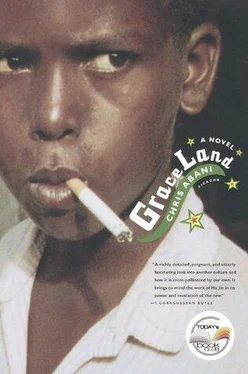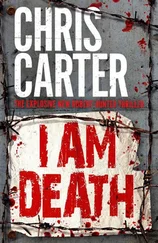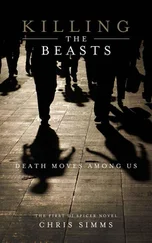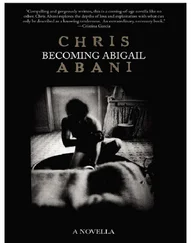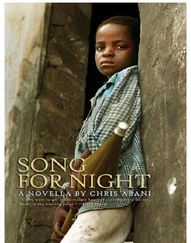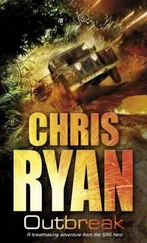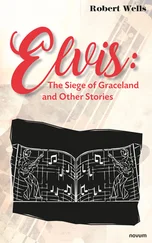The rest of the carnage — the shooting of the priests, the burning of the church and the slaughter of the congregation who had been worshipping inside it — had been done before they got there. Most of the dead had been refugees fleeing from the advancing federal troops. Innocent could no longer tell the difference between rebel- and federal-controlled territory. The lines kept shifting.
It was Harmattan, and everything was coated in fine red dust. A sloughed-off fragment of another hymn popped into Innocent’s head, the words flooding: “Are you washed in the blood, in the soul-cleansing blood, of the Lamb?” He shrugged it away and went back to his playing.
The other boys in the platoon rippled toward Captain. They were hungry and wanted permission to go scavenging. Innocent took the harmonica out of his mouth and gazed past them.
Off to the right was the priests’ house: a one-story structure with big, sweeping verandas and a balcony that wore a lovely ornate wroughtiron balustrade. Bougainvillea crept up the walls in green-and-purple lushness. The building’s brilliant whitewash surprised the red earth of the courtyard. To the left stood two low bungalows that had been the school. In the middle, behind him, were the smoking remains of the church, its once-white walls mascaraed in black tear tracks. In the quadrangle between the buildings rose the statue of the Virgin, shadowed by the statue of Christ on the cross perched in front of the church. Towering above the Madonna and Christ was a bamboo flagpole. On it white twine beat forlornly in the wind, wishing for a flag.
Some bodies littered the road into the church compound and on the dry grass that was tenaciously holding on to the hard earth. They were mostly women, some men and even a few children. Some of them had been shot; others had been hacked to death with machetes. A few had been clubbed. Blood stained their clothes. The whitewashed stones lining the road were flecked with the dried blood, like teeth stained with pink dental dye. There were still pools of blood, clotting flies into a knobby black crust. The earth was baked so hard it couldn’t absorb any more blood. It refused to soak it up.
Even though the enemy had been responsible for this massacre, Innocent knew the rebels weren’t much better. He had long since lost any belief in the inherent goodness of the rebel cause and the evil of the enemy. Once he had been driven by deep idealism. Now he just wanted to survive. He had seen Captain commit enough atrocities to realize that they were all infected by the insanity of blood fever.
He looked at the dead bodies. They had probably converged on the church compound believing they would be safe here, protected by God’s benevolence and man’s reputed fear of Him. How wrong they had been! He could have told them that. There is only one God in war: the gun. One religion: genocide.
He looked up to see Captain studying him intently.
“Oi, Music Boy!” Captain called. “Music Boy!”
Innocent ignored him.
“Oh, Music Boy is angry dat we defiled God’s servants. He believes God is going to punish us. Dat’s why he is playing his mouth organ, to ease de souls of the dead mercenary priests to heaven or hell,” Captain said, bursting into deep laughter.
Innocent stopped playing. He was suddenly nervous; there was something dangerous in the way Captain laughed. Still laughing, Captain got up and walked over to Innocent. Innocent sprang up and walked away.
Captain stopped and turned to one of the boys in the group. “James.”
“Sar.”
“James, aim at dis bagger and fire on command.”
James hefted his Mark IV rifle up, rammed a bullet into the breach and pointed it at Innocent’s chest.
“At yar command, sar!” he said.
“Do you see? Do you see obedient, eh? Next time I call you, you jump up, run over and say ‘Yes sar!’ Do you understand me?”
“Yes sar!” Innocent said, snapping to attention. He knew Captain was a little crazy and capable of killing him.
“Good. Music Boy!”
“Yes sar!”
Captain laughed. Turning to James, he said, “Ajiwaya,” a Biafran army term meaning, “As you were.” James lowered the rifle. It was still cocked. He held it gingerly. Having no safety catch, it was extremely dangerous to carry once cocked. James spoke up, deflecting Captain’s attention from Innocent.
“Sar. Permission to speak, sar!” he said.
Captain gave him a perfunctory nod.
“We are hungry, sar. Can we sarch de priests’ house to see if we can find food, sar?”
“Go on,” Captain said.
The group broke rank and with whoops of glee tripped their way to the priests’ house. It had not been burned, and that made Innocent suspicious. The whole place was probably booby-trapped. He shouted a warning, but nobody listened. They were too hungry. None of them had had anything more substantial than wild fruit foraged in the forest. No meat, since most of the animals had fled deep into the jungle to hide.
Innocent remembered the last time they had meat. One of the boys had shot a monkey. They had done it before — shot monkeys. Cooked them into a pepper soup that smelled delicious. But Innocent could never eat any. The monkey had looked so human, the small hands so like a child’s, scraping the side of the container used as a pot. One monkey, obviously not dead, had jumped up after being shot. One of the boys had crushed its skull under the butt of his rifle, cutting off its baby squeal. Everyone teased Innocent about not eating the monkey. Called him a coward. A woman. Not a warrior. He pointed out how much like cannibalism it all seemed. Captain swore at him, saying he would make him eat the next dead enemy soldier they came across. The boys hooted with laughter. The last time, however, only a few weeks ago, he had given in to the taunting and taken a piece of the meat. Later he was sick, but he couldn’t get the taste of it out of his mouth. The frightening thing was, he had enjoyed it.
A few minutes later, the boys emerged with tins of pork, stale bread, bottles of hot beer and altar wine. They had been left behind by the federal troops, who were mostly Muslims. They brought the loot to Captain, and only when he had selected what he wanted did they pounce on the rest. Tins were bayoneted open. Hot beer boiled over roughly opened bottles. Nobody paid any attention to Innocent or offered him any food. There was only one motto here: “We shall survive.”
Innocent got up and walked up the three steps into the burned-out shell of the church. The fire hadn’t consumed everything. Three walls, the roof — three-quarters of the church — had been burned. In the still-smoking pews he saw the roasted corpses of the congregation. They had been shot, clubbed or macheted to death and then tied to the pews to roast with the church. The air was heavy with the stench of roasted meat, not nauseating, but actually mouthwatering. Innocent wondered if they had all been dead or whether some had survived the shots, clubs and machetes to be consumed screaming by the fire. Did dying in a church guarantee you a place in heaven? he wondered, walking up the aisle crunching soot, ash and charcoal underfoot.
The altar had miraculously survived. It was still set for mass: white altar cloth, chalice, communion wafers still stuffed into the ciborium, water, wine, candles, flowers and an open missal. Innocent walked round the altar and read the open page. He used to be an altar boy, and the Latin was not difficult for him to read. “Kyrie eleison, Christe eleison, Kyrie eleison.”
Behind the altar, not wearing a single bullet hole and only slightly cracked from the heat, was a stained-glass window. It filtered the harsh sunlight in soft blues, yellows, pinks, oranges and greens. Innocent noticed that the floor, the altar, the missal and his own body had become a patchwork of color. He licked the tip of a blue finger and peeled away a red page, an orange one and a green one. He paused and read. “Agnus Dei, qui tollis peccata mundi, miserere nobis … Agnus Dei, qui tollis peccata mundi, dona nobis pacem.” He smiled at the last line: “Grant us peace.”
Читать дальше
